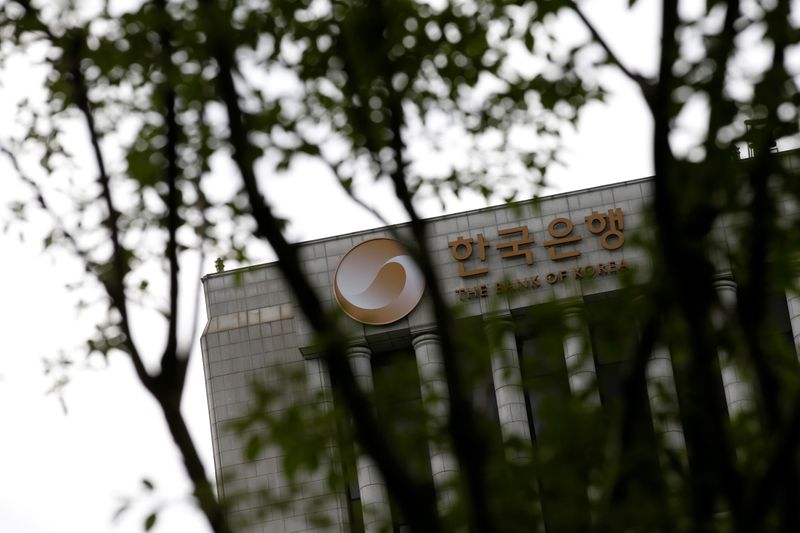By Vivek Mishra
BENGALURU (Reuters) - South Korea's central bank will keep rates unchanged on Tuesday but will set the stage for a rate hike next month to follow the August rise, as high household debt and a red-hot housing market threaten financial stability, a Reuters poll found.
Koreans have been borrowing more than ever before and policymakers are increasingly worried skyrocketing property prices have become a risk to the economy, which has recovered strongly from last year's recession.
After hiking for the first time in almost three years in August, nearly all economists in an Oct. 1-7 Reuters poll said the BoK would keep its base rate unchanged at 0.75% on Tuesday. A recent rise in COVID-19 cases around the country has raised downside economic risks in the short-term.
But 23 of 29 respondents polled expected a hike at the November meeting, taking the benchmark lending rate to 1.00%.
"The BoK (will) keep its policy rate on hold at its meeting next week but signal its intent to normalise policy further ... to mitigate financial instability risks arising from rising house prices and high household credit growth rather than inflation, which is expected to ease next year," said Krystal Tan, an economist at ANZ.
"With the government is set to announce more measures to curb household debt later this month, including potentially tighter rules on home-backed loans. There is a stronger case for the BoK to proceed cautiously, as concerns over financial imbalances need to be balanced with the economic recovery."
If the central bank delivers a rate hike in November, it would put South Korea well ahead of most other developed economy central banks in the current global tightening cycle, including New Zealand, which raised rates for the first time in seven years on Wednesday.
Most economists agree there is more tightening coming and see the interest rate reaching 1.25% by the end of next year. Looking further out into 2023, the median from a smaller sample of economists pointed to another 25 basis point hike to 1.50%.
South Korea's central bank also reiterated it would continue to tighten policy as inflationary pressures persist.
Inflation eased slightly in September to 2.5% but remained above the central bank's 2% target for a sixth straight month.
It is expected to average 2.1% this year, slipping to 1.6% next year and 1.7% in 2023, according to the poll.
"The main driver of inflation in recent months has been higher food prices due to disruption from the weather and a bird flu outbreak," said Alex Holmes, Asia economist at Capital Economics. "These temporary factors should unwind in the coming months, and we expect the headline rate to drop back to the Bank of Korea's 2% target by early 2022."
However, a resurgence of COVID-19 casts doubts over the outlook for growth for the rest of the year. South Korea's economy expanded 6.0%, the fastest annual pace in a decade, in the second quarter thanks to a pick up in private consumption.
But growth in Asia's fourth-largest economy likely slowed to 4.2% in the September quarter and will fall to 4.1% in the current quarter, the poll showed.

Growth is forecast to average 4.0% this year after shrinking for the first time in over two decades last year. But it is expected to ease to 3.0% next year and then to 2.6% in 2023.
(For other stories from the Reuters global economic poll)